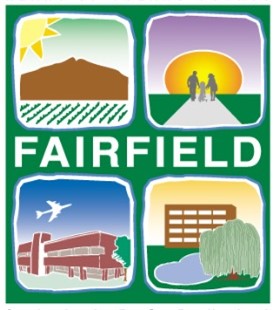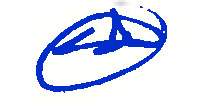| | | | | | | | 
AGENDA REPORT
|
| | | | | | | | DATE:
| July 20, 2021
| TO:
| Mayor and City Council
| FROM:
| Stefan T. Chatwin, City Manager
| | SUBJECT: | Second Reading and Adoption of Ordinance 2021-13 of the City Council of the City of Fairfield Amending Chapter 9 of the Fairfield Municipal Code Relating to Solid Waste Collection Services |
|
| | | | | | | | | RECOMMENDED ACTION | | Provide second reading and adopt Ordinance 2021-13. |
|
| | | | | | | | | STATEMENT OF ISSUE | | Staff has identified necessary revisions to Chapter 9 “Solid Waste Collection Services” of the Fairfield Municipal Code (Chapter 9). Revisions include general language clarification/modernization; addition of new language to meet new regulations mandated by the State Department of Resources Recycling and Recovery (CalRecycle) related to Senate Bill 1383 (SB 1383); and revisions to existing language to meet new mandates required by the State’s Green Building Standards Code (CALGreen). This is the second reading of the ordinance for adoption. The public hearing and first reading were held at the July 6, 2021, City Council meeting. |
|
| | | | | | | | | DISCUSSION | Chapter 9 of the Fairfield Municipal Code sets forth terms and conditions to provide solid waste collection services, and to promote the public health, welfare and safety of the community by establishing regulations relating to the storage, accumulation, collection and disposal of solid waste in the City of Fairfield (City). Chapter 9 covers all aspects of the collection and disposal of trash, recycling, organic waste, construction and demolition (C&D) waste, and other types of waste. These regulations apply to all residential households and commercial/industrial properties within the city.
Chapter 9 was last updated in February 2013. Recent and upcoming changes in state mandates regarding solid waste recycling and diversion requirements, clarification of language to aid in staff’s implementation of existing solid waste diversion requirements, and general language modernization/clarification, have warranted an update.
The proposed changes to Chapter 9 include minor modification and clarification to existing language. More substantial changes include adding new language to meet CalRecycle requirements related to SB 1383 for the following: 1) revisions to the existing self-haul exclusion; 2) mandatory subscription to recyclables and organic waste collection service; 3) creation of a commercial edible food recovery section; and 4) changes to CALGreen C&D waste diversion minimums.
1. Revisions to the Self-Haul Exclusion
The existing self-haul exclusion allows residential households or commercial/industrial owners who seek to collect and dispose of solid waste generated in or on their premise, to obtain a self-haul permit from the City by completing an application, paying the required fee, and complying with procedures for self-hauling adopted by the council. Proposed changes to this exclusion include adding additional requirements pursuant to SB 1383 directives. These changes include requiring self-haulers to deliver and provide proof that recyclables and/or organic waste is disposed at permitted resource recovery facilities, as well as reporting to the City the type and quantity of the material hauled.
To protect the exclusivity of the City’s existing franchise agreement with Republic Services, the exclusion does not allow any residential household or commercial/industrial business owner to employ or engage any solid waste enterprise, other than the City’s authorized franchised hauler (i.e. Republic Services) for a fee.
2. Mandatory Subscription to Recyclables and Organic Waste Collection Service
On January 1, 2022, SB 1383 will go into effect. SB 1383 is the most significant waste reduction mandate to be adopted in California in the last 30 years and will result in numerous changes to local jurisdictions, haulers, and solid waste generators. SB 1383 sets statewide mandates for organics recovery and will result in mandatory organic recycling for all solid waste generators, including residential households, commercial/industrial business owners and multi-family properties. All organic waste generators shall be required to separate their waste by source type (source-separate) and subscribe to service or self-haul pursuant to the requirements described in Chapter 9.
The proposed changes to Chapter 9 will require that commercial/industrial business owners will be responsible for ensuring and demonstrating their compliance with the following requirements: source separating recyclables and organic waste from garbage; prominently posting and maintaining one or more signs where recyclables and/or organic waste are collected; and notifying and instructing employees and tenants of applicable source separation requirements. Furthermore, for those whose garbage was not removed due to improper separation of recyclables, it shall be the responsibility of the business or multi-family property owner to properly separate recyclables for pickup. Failure to meet these requirements will result in penalties to the offending party.
3. Edible Food Recovery Section
SB 1383 will require the City to establish an Edible Food Recovery Program for commercial edible food generators (Generators). SB 1383 establishes two “tiers” of commercial edible food generators to which the regulations will apply; these classifications are aptly called Tier 1 and Tier 2 edible food generators. Tier 1 Generators include supermarkets, grocery stores with a total facility size greater than 10,000 square feet, and food distributors. These Tier 1 Generators produce perishable food (fresh fruits and vegetables) and non-perishable food (canned and boxed food items). Examples of a Tier 1 Generator include Costco, Food Maxx, or Producers Dairy Foods. Tier 2 Generators include restaurants with a facility size equal to or greater than 5,000 square feet; health facilities with an on-site food facility and 100 or more beds; and local education agency facilities with an on-site food facility. Examples of Tier 2 Generators include Texas Roadhouse, Paradise Valley Estates, and Fairfield High School. Tier 2 differs from Tier 1 in that many of Tier 2 generators largely produce prepared foods.
The proposed changes to Chapter 9 will require that Tier 1 Generators shall comply with the requirements of Title 14, Division 7, Chapter 12 of the California Code of Regulations commencing January 1, 2022, and Tier 2 Generators in January 1, 2024. In addition, both Tier 1 and Tier 2 Generators shall comply with the following requirements: arrange to recover the maximum amount of edible food that would otherwise be disposed; contract with, or enter into a written agreement with, food recovery organizations or food recovery services for the collection of edible food for food recovery; and keep records of the amount and location of recovered food and report to the City.
4. Meeting CALGreen Mandates
On July 1, 2019, new mandatory diversion measures became effective for both residential and nonresidential new construction in the California Code of Regulations Title 24, Part 11 California Green Building Standards Code 2019 (CALGreen). These new requirements directly impact construction and demolition disposal and recycling.
Currently §9.640 of the Fairfield City Code requires that Authorized Collectors of C&D waste ensure and document that at least fifty percent of the C&D waste collected by the Authorized Collector is recycled or otherwise diverted from disposal in a landfill. The proposed changes to Chapter 9 will require at least sixty-five percent C&D waste collected waste is recycled or otherwise diverted from disposal in a landfill.
SB 1383 is a significant policy not only for the solid waste and organics implications, but for its food recovery requirements as well. To meet State goals and mandates, it is necessary for the City to have the proposed changes to Chapter 9 in place by January 1, 2022, at which point CalRecycle will begin evaluating the City’s compliance. If CalRecycle determines that the City is violating one or more of the requirements, a Notices and Violation may be issued. Failure to correct these issues may result in direct fines from CalRecycle and the City being placed on a corrective action plan.
|
|
| | | | | | | | | PUBLIC CONTACT/ADVISORY BODY RECOMMENDATION | Staff contacted CalRecycle regarding SB 1383 requirements and provided draft copies of the proposed ordinance to Republic Services for comments and review.
|
|
| | | | | | | | | ALTERNATIVE ACTION | | The council may elect to amend the ordinance as presented. |
|
| | | | | | | | | STAFF CONTACT | Corey Beavers, Management Analyst
(707) 428-7528
cbeavers@fairfield.ca.gov
|
|
| | | | | | | | | COORDINATED WITH | City Attorney's Office
|
|
| REVIEWERS: | | Reviewer | Action | Date | | Hether, Michael | Approved | 7/6/2021 - 6:56 PM | | Kaushal, Paul | Approved | 7/6/2021 - 8:03 PM | | Alexander, Amber | Approved | 7/9/2021 - 2:28 PM | | Alexander, Amber | Approved | 7/9/2021 - 2:28 PM |
|
|